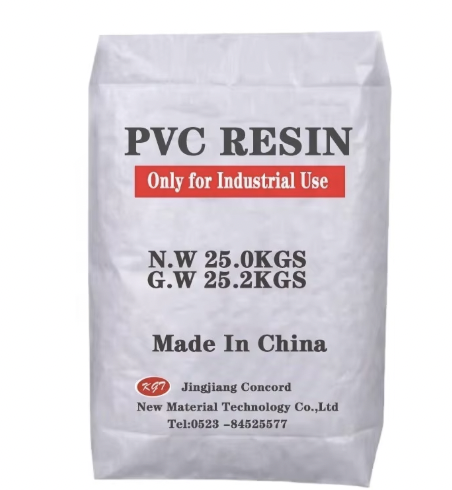Understanding PVC Resin Properties and Selection Criteria
Selecting the appropriate PVC resin grade is crucial for ensuring optimal product performance and manufacturing efficiency. The diverse range of PVC resin grades available today offers varying molecular weights, particle sizes, bulk density, and other key characteristics that directly impact the final product quality. Whether you're developing rigid PVC products or flexible applications, understanding these fundamental properties will help guide your selection process.
The choice of PVC resin grade influences everything from processing conditions to end-product specifications. Manufacturers must carefully evaluate their specific requirements, including the intended application, processing method, and desired physical properties of the finished product. This comprehensive guide will explore the essential factors to consider when selecting a PVC resin grade and provide insights into optimizing your material selection process.
Key Properties of PVC Resin Grades
Molecular Weight and K-Value
The molecular weight of PVC resin grade directly affects its mechanical properties and processing characteristics. Higher molecular weight resins typically offer improved impact strength and chemical resistance but may require more intensive processing conditions. The K-value, a measure of relative viscosity, serves as an industry standard for indicating molecular weight and helps predict processing behavior.
Different applications demand specific K-value ranges. For example, rigid PVC pipes and fittings usually require K-values between 65 and 68, while flexible profiles might need lower K-values around 57-60. Understanding these relationships helps ensure optimal performance in your specific application.
Particle Size Distribution
The particle size distribution of PVC resin grade significantly impacts its processing characteristics and final product quality. Finer particles generally provide better gelation and fusion properties, resulting in smoother surfaces and improved mechanical properties. However, they may also affect powder flow and bulk density, which are critical factors in processing efficiency.
Modern PVC manufacturing processes can produce resins with carefully controlled particle size distributions, allowing processors to select grades that match their specific equipment capabilities and product requirements. This optimization leads to better processing stability and consistent product quality.
Application-Specific Requirements
Rigid PVC Applications
Rigid PVC applications, such as pipes, fittings, and profiles, typically require PVC resin grades with specific characteristics. These include high molecular weight for mechanical strength, excellent heat stability for processing, and appropriate particle size distribution for optimal fusion. The chosen PVC resin grade must provide the right balance of processability and end-product performance.
When selecting a resin for rigid applications, consider factors like extrusion parameters, wall thickness requirements, and environmental exposure conditions. The right PVC resin grade will ensure dimensional stability, impact resistance, and long-term durability of the finished product.
Flexible PVC Applications
Flexible PVC applications demand different resin characteristics compared to rigid applications. These grades typically have lower molecular weights and are designed to accommodate high levels of plasticizers. The selection process must account for factors such as plasticizer compatibility, flexibility requirements, and processing temperature ranges.
The chosen PVC resin grade should provide excellent plasticizer absorption and retention while maintaining good thermal stability during processing. This ensures consistent product quality and optimal performance in applications like cables, films, and flexible tubing.
Processing Considerations
Thermal Stability Requirements
The thermal stability of PVC resin grade is critical for successful processing and product quality. Different processing methods and end-use applications require varying levels of heat stability. The selected grade must maintain its properties throughout the entire processing temperature range without degradation or discoloration.
Modern PVC resin grades often incorporate thermal stabilization technologies that enhance processing windows and prevent premature degradation. This allows for more efficient production and consistent product quality across different manufacturing conditions.
Gelation Characteristics
Gelation behavior plays a crucial role in PVC processing and affects the final product properties. The chosen PVC resin grade must provide appropriate fusion characteristics for the specific processing method and equipment being used. Proper gelation ensures optimal mechanical properties and surface quality in the finished product.
Understanding the relationship between processing conditions and gelation behavior helps in selecting the most suitable PVC resin grade. Factors such as processing temperature, shear rate, and residence time must be considered to achieve the desired level of fusion and product properties.
Quality and Performance Testing
Physical Property Evaluation
Comprehensive testing of physical properties is essential when selecting a PVC resin grade. This includes evaluating tensile strength, impact resistance, hardness, and other mechanical properties relevant to the intended application. Regular testing ensures consistency and helps identify any potential issues before full-scale production.
Establishing a robust testing protocol helps validate the selected PVC resin grade's performance and maintains quality standards throughout production. This may include both standard industry tests and application-specific evaluations to ensure optimal product performance.
Long-term Performance Assessment
Long-term performance considerations are crucial when selecting a PVC resin grade. This includes evaluating weathering resistance, chemical resistance, and aging characteristics. The chosen grade must maintain its properties throughout the product's expected service life under various environmental conditions.
Advanced testing methods and accelerated aging techniques help predict long-term performance and validate material selection decisions. This ensures that the selected PVC resin grade will meet performance requirements throughout the product lifecycle.
Frequently Asked Questions
What factors most influence PVC resin grade selection?
The primary factors influencing PVC resin grade selection include the intended application requirements, processing method, desired end-product properties, and specific performance criteria such as impact strength, chemical resistance, and weatherability. Consider also the processing equipment capabilities and production efficiency requirements.
How do different K-values affect PVC product properties?
K-values directly correlate with molecular weight and influence various product properties. Higher K-values typically result in better mechanical properties and chemical resistance but may require more intensive processing conditions. Lower K-values offer easier processing but may result in reduced mechanical properties.
Can different PVC resin grades be blended for custom applications?
Yes, different PVC resin grades can be blended to achieve specific property combinations. However, careful consideration must be given to compatibility, processing conditions, and final product requirements. Professional guidance and testing are recommended when developing custom blends.

